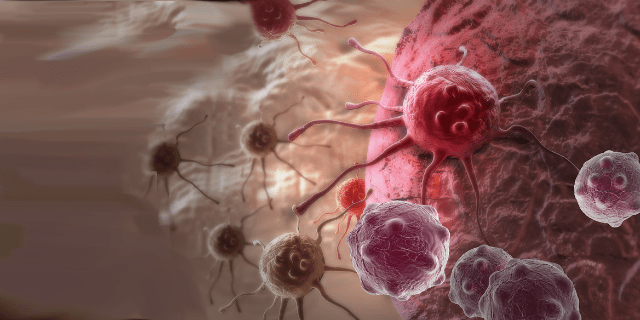Although palliative care is not a “curative” treatment for the disease, it can be delivered alongside forms of treatment with curative intent in order to improve QOL..
I’m here today because of palliative cancer care for multiple myeloma. To be specific, I underwent palliative radiation in 1996. Technically speaking, I was “end stage.” It might sound far-fetched but it’s true. Local radiation nuked the myeloma lesions in my iliac crest (hip bone). I felt better within days. The therapy was NOT curative. But the therapy did buy me time (9 months) to pursue other curative therapies.
My point is that palliative care is not hospice care. Managing your symptoms (bone pain) is necessary while you pursue other therapies.
Looking back on that palliative radiation in 1996, I see two fundamental problems.
- First, my oncologist didn’t explain the palliative nature of my radiation therapy. Meaning, Dr. Berger knew that the radiation therapy was not curative however I believed that this therapy could cure me or at least put me into a longer remission.
- Secondly, as the articles linked and excerpted below discuss, early palliative support leads to a better overall quality of life as well as increased length of life.
I am both a long-term multiple myeloma survivor and multiple myeloma cancer coach. Newly diagnosed multiple myeloma patients don’t know what they don’t know. Newly diagnosed patients would probably leave their referral to a palliative specialist up to their oncologist.
Palliative Care (PC) for multiple myeloma patients is just one of the many issues that you will learn about in the Multiple Myeloma Cancer Coaching Program.
Click now to learn more about end-stage multiple myeloma
To discuss palliative cancer care specific to your diagnosis scroll down the page, post a question and I will reply ASAP.
Thank you
David Emerson
- MM Survivor
- MM Cancer Coach
- Director PeopleBeatingCancer
Recommended Reading:
Palliative care (from Latin palliare, to cloak) is an area of healthcare that focuses on relieving and preventing the suffering of patients. Unlike hospice care, palliative medicine is appropriate for patients in all disease stages, including those undergoing treatment for curable illnesses and those living with chronic diseases, as well as patients who are nearing the end of life. Palliative medicine utilizes a multidisciplinary approach to patient care, relying on input from physicians, pharmacists, nurses, chaplains, social workers, psychologists, and other allied health professionals in formulating a plan of care to relieve suffering in all areas of a patient’s life. This multidisciplinary approach allows the PC team to address physical, emotional, spiritual, and social concerns that arise with advanced illness.
“The role of PC is widely misperceived as a strategy reserved for patients with limited options in advanced stages of disease…
Although PC is not a treatment for the disease, it can be delivered alongside forms of treatment with curative intent in order to improve QOL..
“The new model is simultaneous integration—making PC routine, not an exception…
“Knowing this hard diagnosis, Amy was clear from the beginning that she wanted a “good quality of life for as long as possible,” and she found an oncologist who supported that choice.”
“Chemotherapy in the last months of life significantly increased cancer patients’ odds of intensive treatment in the last week of life, late referral to hospice care, and death away from their preferred place, investigators reported.
“One week after admission the researchers found that 82.8 percent of patients had achieved adequate pain control, with a mean reduction of 0.69 to 1.91 points on pain scale scores. Pain management outcomes varied widely between PC centers. Human resource adequacy, in particular, correlated significantly with a greater reduction in pain score and an achievement of adequate pain control.”
“While previous studies have shown the link between PC and lower costs, this is the first study to examine whether the effect of PC consultation varies by the number of co-existing chronic conditions…”
“Visits to the ED are common for patients with advanced cancer and it is during these visits that decisions are often made about the intensity of care. Although the availability of palliative care services continues to increase, consultation typically does not happen until a week into a patient’s hospital stay. A consultation initiated from the ED may be an opportunity to ensure that care is congruent with a patient’s wishes and to interrupt the cascade of intensive, end-of-life care that may be a marker of low-quality care….”
“The cost of caring for patients with advanced cancer in an academic medical center is significant and increases substantially as disease progresses, suggesting that academic medical centers are using more aggressive treatment during end-of-life care than necessary, a new cost analysis suggests.
Importantly, offering patients PC in a PC unit significantly attenuates the usual cost of hospital care, another cost analysis shows…”
“Even though the use of palliative care has been increasing among patients with hematologic malignancies, the rates are still low as compared with patients with solid tumors, according to new findings.
“Palliative care encounters predominantly occurred within days of death and within a hospital setting,” said lead author Vinay Rao, DO, a hospice and palliative medicine specialist at Rhode Island Hospital in Providence. “This was similar among all histologies.”
Patients who received palliative care early, defined as more than 30 days before death, spent an average of 22 days in hospice, while those who received palliative care late or not at all spent a median of 9 days in hospice.
Overall, the median time from first palliative care encounter to death was 10 days in the cohort as a whole…”



